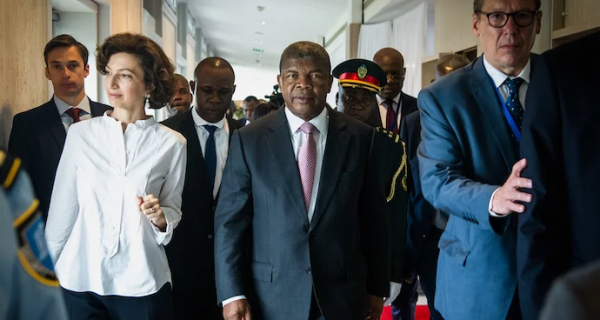The President of the Republic highlighted that the fight against hunger and poverty requires “a courageous approach” to identify “without taboos” the main causes of the problem and pragmatic and lasting solutions to avoid resorting to welfare, which he considered did not solve the root problem. .
Hunger is a scourge that does not only affect developing countries, he highlighted, and can be observed in developed and industrialized countries, and it is therefore imperative to look “at the issue of combating hunger and poverty, from the same perspective and with the same sensitivity.”
The head of state welcomed the creation, at the initiative of Brazil, of the Alliance in the Fight against Hunger and Poverty, of which Angola is a founding member, highlighting that it is essential to look at the “urgent need to create conditions that favor the development of sustainable agriculture” to ensure food security and eradicate hunger.
“To this end, there is a need to mobilize efforts and resources to support countries in implementing effective public policies that are essentially based on carrying out structural and transversal actions, with a view to reducing inequalities”, indicated the head of the executive.
João Lourenço praised Brazil's experience in combating hunger and poverty, “quite inspiring due to the practical results it has achieved”, stating that it demonstrates that investment in agriculture “is the right option” to promote development and improve the living conditions of people. populations.
He also pointed to the case of Angola, highlighting the effort of national authorities in matters of focus on agriculture to reinforce food security and reduce the “serious dependence” on the import of food.
João Lourenço focused on Angola's “huge potential” in the agricultural sector, with fertile land and abundant water, which makes the country an “attractive and interesting destination for foreign investment” in food production and was convinced that the country will meet the objective of eradicating poverty, set out in the United Nations 2030 Agenda on Sustainable Development Goals (SDGs) and the African Union Agenda 2063.
Regarding climate change, he stressed that it aggravates poverty in entire communities and negatively affects agricultural activities, adding that the government is implementing a program that consists of transferring water to the areas most affected by drought, in the south of the country. , from the Cunene River.
“This allowed generally nomadic populations, who were essentially dedicated to pastoralism, to settle in these areas, which now had pasture and water for their animals and the possibility of producing agricultural goods for their consumption,” he said, indicating that a first canal and water retention reservoirs (Cafu), with similar projects expected to be completed in 2025.
As part of the fight against drought, the President said that Angola also plans to build six large reservoirs in Namibe, with financing mobilization underway, and to mitigate the difficulties faced by the population, a program of monetary transfers to families is underway. most vulnerable (Kwenda) which he compared to Brazil’s “Bolsa Família” program.







